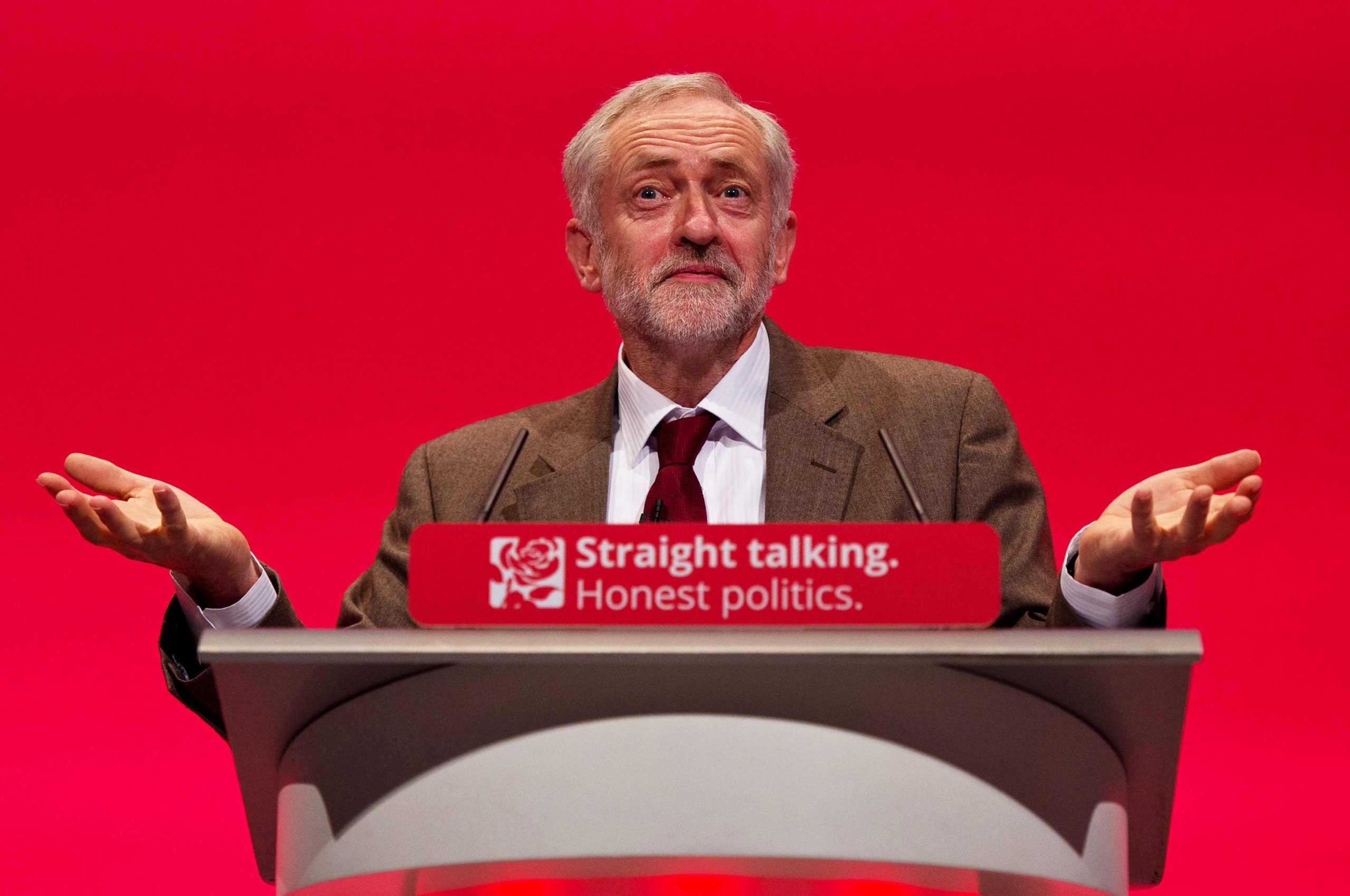
One of the reasons why Jeremy Corbyn irritates people in Westminster is that he has risen to prominence without acquiring any of what used to be regarded as the qualities essential for success. Most leaders cultivate a solar system’s worth of orbiting journalists, who can be relied on to produce friendly columns and a supportive biography. What these writers, most of them true believers, sacrifice in insight, they gain in access: they might be regarded as slavish, but they were essential to understanding the working of the courts of David Cameron, Ed Miliband, Gordon Brown and Tony Blair.
For Corbyn – who, as Kitty Muggeridge once said of David Frost, “rose without trace” – the closest he had to a friendly journalist was Seumas Milne, now embedded at the heart of the Corbyn project as his director of communications, and therefore not available to write a sympathetic biography. So the studies of Corbyn thus far have been written by highly critical friends, at best.
Alex Nunns’s The Candidate is only the latest of a slew of books on Corbyn published this year. Rosa Prince’s Comrade Corbyn was more sympathetic to Corbynism than her tenure at the Telegraph might suggest – but she wrote it, nonetheless, from a Westminster perspective. Prince is part of the group that, as the BBC’s Mark Mardell once put it, covers politics “in a certain way, through a fairly narrow lens, and measure daily success and failure through a set of unwritten rules reached by instinct rather than reflection”. They make the mistake of seeing the Labour leader as a poor player of the parliamentary game rather than realising he is someone who altogether disdains it. This was the mistake that his Labour rivals made when they attempted to remove him this summer: as the shadow cabinet resignations mounted, his enemies congratulated themselves on their skill at chess, blissfully unaware that Corbyn was playing Scrabble.
If Rosa Prince struggled to understand Corbyn’s role outside Westminster, Richard Seymour’s Corbyn: the Strange Rebirth of Radical Politics attempted to clarify his role within it. Seymour’s book is the finest study of Corbyn yet written, but it comes from that section of the far left which wouldn’t, as the author puts it, “be seen dead in Labour”.
Though they disagree on much, Prince and Seymour believe that Corbynism is destined to fail: Prince because it neglects the rules of Westminster, Seymour because it is still shaped too strongly by the demands of winning power there. Accordingly, the best sections of Prince’s book are those that deal with the struggles of his opponents, and the liveliest passages in Seymour’s are those that detail the weaknesses of the Labour Party, whose strategies proved as “useful as a paper umbrella” and whose candidates were “as charismatic as lavatory dispensers”.
In The Candidate, Corbyn is at last given a wholly sympathetic hearing. Nunns is the political correspondent at Red Pepper. As far as the leader’s closest allies are concerned, Nunns’s book is the most authoritative yet published on his rise. Here, finally, is Jeremy Corbyn’s court biography.
The strengths and weaknesses of that approach are much as you would expect. As with Matthew d’Ancona, in In It Together, or Andrew Rawnsley, in The End of the Party, the best studies of the Cameron and Blair eras, respectively, Nunns knows his territory. But, as with the d’Ancona and Rawnsley books, a reader often wants him to stick the knife in – or at least apply a more critical eye. A writer more inclined to wield the knife, however, would have been unable to write this book. Nunns, astutely, grasps that the Labour party’s rise has to be understood through not only events in the Labour party but in the Labour movement. The defeat of Ken Jackson, the last rightwinger to lead Amicus, paved the way for the creation of Unite – and the assertive leadership of Len McCluskey.
The best sections take place in what you might call the prehistory of the Corbyn campaign: the early struggle to make the ballot, the formation of a campaign team, the core of which – Andrew Fisher, Simon Fletcher, Seb Corbyn and John McDonnell – remain essential to the success of the overall project. Nunns describes how Carmel Nolan, Corbyn’s press chief for his first campaign, was recruited in an interview that took place on a park bench – because, at the time, the campaign had no office.
Outside the confines of the Labour left the book is less surefooted. An early, and symptomatic, passage claims that Blair took a personal interest in parliamentary selections. Yet one of the causes of the present trajectory of the Labour Party is that Blair never invested much time or political capital in the generation that came after him. That was why the likes of Michael Dugher, the defeated Blairite choice to run in Doncaster North in 2005, assumed Brownite colours to fight and win later contests, and why most of those MPs elected in 2001 and 2005 endorsed Yvette Cooper, the heir to the mantle of not Blair, but Brown.
That lack of fluency around the animating issues of the Labour right makes The Candidate an imperfect read, though a reader who picked up both Nunns’s and Prince’s books could claim to be fairly well acquainted with every faction in the Labour Party. A book that did both, combining this with the prose and verve of Seymour’s, might finally settle the mystery of Corbyn.
Stephen Bush is NS special correspondent
The Candidate: Jeremy Corbyn’s Improbable Path to Power by Alex Nunns is published by OR Books (404pp, £15)
This article appears in the 10 Nov 2016 issue of the New Statesman, The Trump apocalypse






